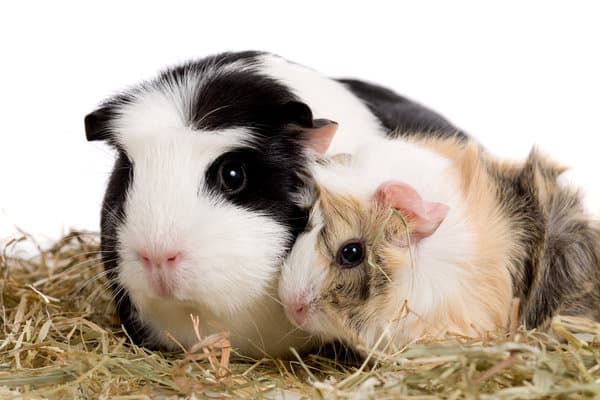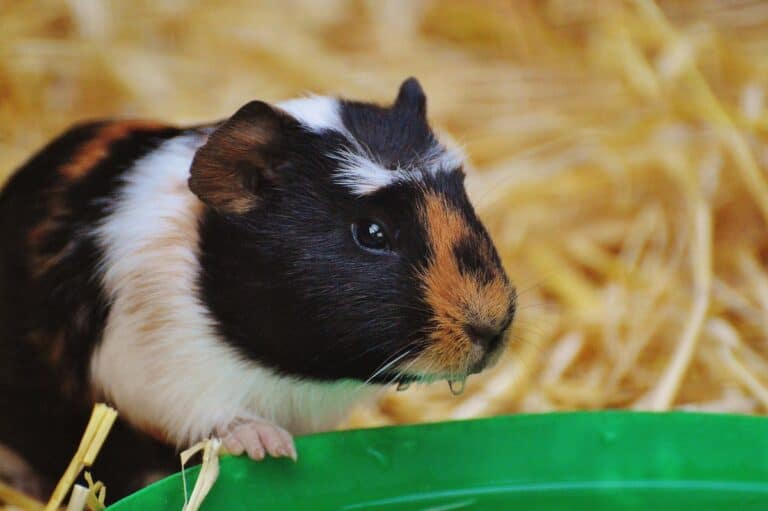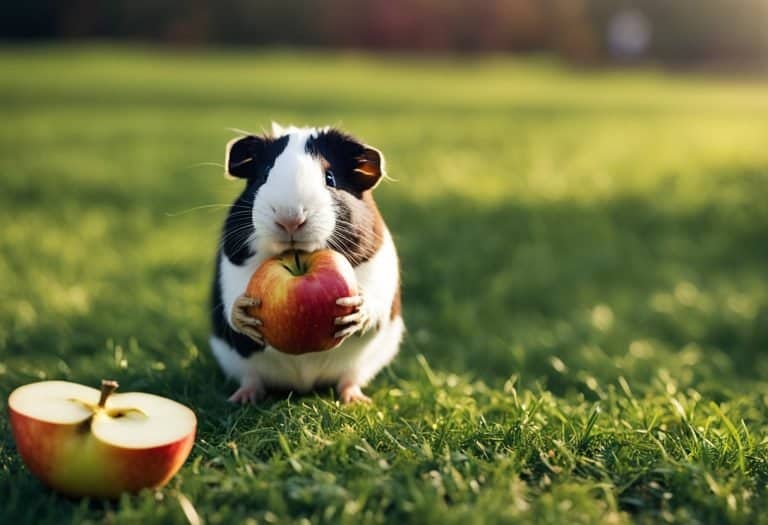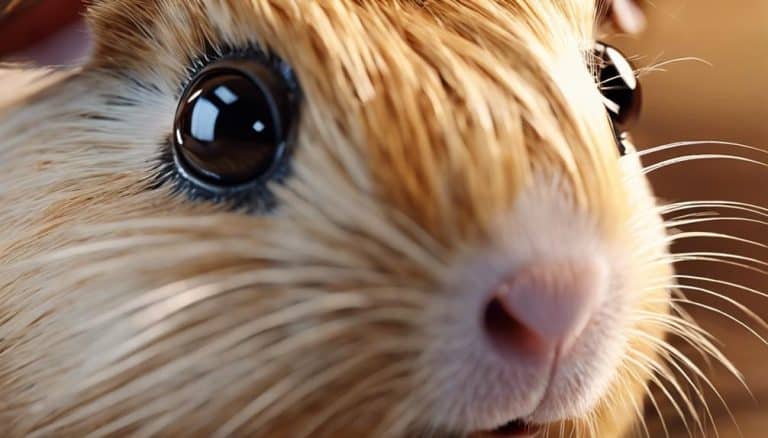What Do Guinea Pigs Do at Night
So, have you ever wondered what guinea pigs do at night? Well, it turns out these little critters are most active during the early morning and evening hours. They’re crepuscular animals, meaning they love to roam around and explore during the twilight.
Our furry friends only need about four hours of sleep a day, taking quick power naps lasting 15-30 minutes. Sometimes, they even snooze with their eyes open or while standing up! It’s fascinating to see how their sleep patterns are influenced by their wild instincts.
So, let’s dive into the world of guinea pig nighttime adventures and learn how to make their nocturnal activities even more enjoyable!
Nocturnal or Diurnal Behavior
We’ve observed that guinea pigs are primarily crepuscular, meaning they’re most active during dawn and dusk. This unique behavior allows them to be active during the times of day when their wild ancestors needed to forage for food and stay alert to avoid predators.
Although not strictly nocturnal, guinea pigs can be active during the night as well. Their irregular sleep pattern means that they take frequent power naps throughout the day, each lasting about 15-30 minutes. This behavior stems from their natural instincts and the need to stay vigilant.
It’s important to understand their sleep patterns and respect their need for rest, creating a comfortable environment for them to do so. By paying attention to their signs of sleepiness and avoiding disturbances during their naptime, we can ensure that our guinea pigs get the rest they need.
Guinea Pig Sleep Patterns
Guinea pigs typically engage in irregular sleep patterns, with each nap lasting about 15-30 minutes, allowing them to be active during both the day and night. Their sleeping patterns are quite fascinating. Here’s what we’ve observed:
- Short Power Naps: Guinea pigs take short power naps throughout the day and night, enabling them to stay alert and responsive to their environment.
- Deep Sleep: Although their naps are short, guinea pigs also experience deep sleep. It’s essential to provide them with a quiet and comfortable environment to ensure they get the rest they need.
- Adaptability: Their ability to nap in short bursts allows guinea pigs to adjust to their surroundings, making them adaptable and capable of thriving in various environments.
Understanding the unique sleeping habits of guinea pigs can help us create a suitable and comfortable space for our furry friends to rest and be at their best.
Understanding Nighttime Activities
At night, they engage in various activities, including exploring their surroundings and foraging for food. Guinea pigs, being small mammals, have a natural instinct to be active during the early morning and early evening hours. Understanding their nighttime activities is crucial in providing them with an environment where they can freely express their natural behaviors. It’s important to respect your guinea pigs’ sleep schedule and create a quiet and comfortable environment for them to rest. Providing cozy hiding spots and pockets, such as those found in the GuineaDad Liners, contributes to a comfortable sleep environment. By understanding their need for nighttime activities and respecting their sleep patterns, we can ensure that our guinea pigs have the freedom to live according to their natural instincts.
| Nighttime Activities | Importance |
|---|---|
| Exploration | Fulfilling their natural instincts and providing mental stimulation |
| Foraging for food | Encouraging physical activity and satisfying their natural foraging behavior |
| Quiet environment | Respecting their sleep schedule and ensuring adequate rest |
Encouraging Better Sleep
To promote better sleep for our guinea pigs, providing a cozy and quiet environment is essential. Here are some ways to encourage better sleep for our furry friends:
- Respect Their Natural Sleeping Habits: Guinea pigs are crepuscular, meaning they’re most active during dawn and dusk. Allow them to follow their natural sleeping pattern without disturbance.
- Consider a C&C Cage: Create a comfortable living space for your guinea pigs with a C&C Cage, providing ample room for them to move around and hide if they choose to nap during the day.
- Soft and Safe Sleeping Areas: Ensure your guinea pigs have cozy hiding spots and soft bedding, like the GuineaDad Liners with pockets, to help them feel secure and comfortable during both day and night.
Managing Nighttime Disturbances
During the night, we need to be mindful of minimizing disturbances for our guinea pigs in order to ensure they have a peaceful and uninterrupted sleep. Guinea pigs are vulnerable to disruptions during their nighttime rest, so it’s crucial to make sure they have a calm environment. To manage nighttime disturbances, consider the noise level in their surroundings. We can partially cover their cage to provide warmth and create a cozy sleeping area. Additionally, placing them in a quieter, less stressful room can help minimize disturbances. Here’s a table to help manage nighttime disturbances:
| Managing Nighttime Disturbances |
|---|
| Keep noise levels low |
| Provide a cozy sleeping area |
| Create a calm environment |
Conclusion
In conclusion, guinea pigs are most active during the early morning and early evening, and they only need around four hours of sleep per day. Understanding their sleep patterns and nighttime activities can help us better care for them and ensure they get the rest they need.
By creating a comfortable and quiet environment for them to sleep in and managing nighttime disturbances, we can help our guinea pigs get the rest they need to stay healthy and happy.







